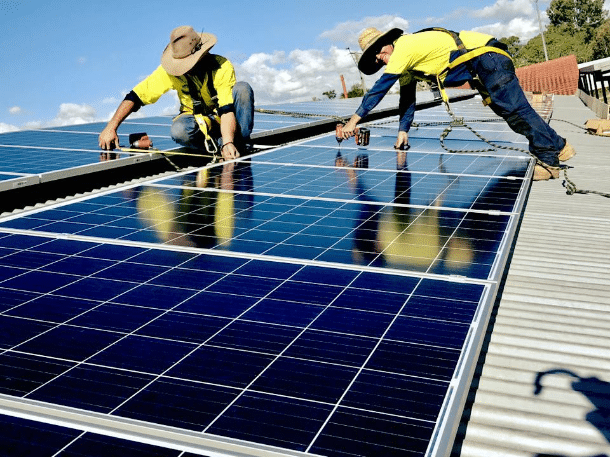A car dealership in Ipswich, Queensland, has created an urban solar farm with its own smart battery technology.
Llewellyn Motors has set up Australia’s largest privately-owned power station using virtually all its roof space for solar panels.
The powerful solar energy system subsequently provides around half of the Queensland business’s electricity needs.
And the special type of battery used switches on and off to balance peaks in demand, therefore reducing power bills.
The 1,232-panel, 332-kilowatt system has already saved owners about $7,000 in power bills since switch-on in October.
Urban solar farm creates new income stream
The smart technology used in the system enables Llewellyn Motors to feed excess power back into the grid.

This has not always been possible for large businesses due to potential damage caused.
The 330 kW solar and lithium-ion battery storage array has the potential to generate a further revenue stream.
The technology also determines the optimal time to sell energy into the grid, not only generating income but reducing demand on the grid.
The solar power system is expected to reduce Llewellyn Motors’ carbon footprint by 8,400 tonnes. It should also save more than $2 million in power costs over the next 20 years.
Giving owners control of electricity consumption
This is the first time an ‘urban solar farm’ has been trialled on the ground in Australia.
The new dSTATCOM (static synchronous compensator) technology allows solar customers to:
- Store excess power via solar storage batteries.
- Export stored solar power to the grid.
- Help reduce demand on the grid and meet network needs.
- Increase business return on investment.
The technology can monitor grid power requirements and scale the site’s power output to match demand.
This subsequently allows the customer to get around network restrictions on solar exports.
According to Llewellyn Motors’ General Manager James Sturgess, the company aimed to be cash flow positive from day one.
“We’ve been able to achieve 90 per cent of our target straight away, and that’s taking into account a few rainy days,” he told Queensland Times.












































